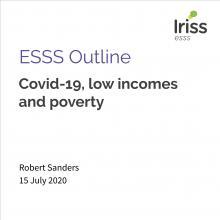We live in an age where efficacy is a key issue, particularly in respect of the use of public funds. A poor evidence base underpinning policy or practice is, therefore, a vulnerability that should be avoided. Our two organisations have been concerned for some time to promote and support action within education for social work and social care that raises awareness of the importance of evidence-based practice and demonstrates a practical commitment to evaluating teaching and learning processes.
We commissioned Professor John Carpenter to write this discussion paper as a contribution to this process and were pleased at the positive reponse he received when introducing it at the 2004 Joint Social Work Education Conference in Glasgow. He brings to this task a long-standing interest and experience in educational evaluation, most recently in post-qualifying mental health programmes for the NHS Executive.
The paper addresses key aspects of the evaluation of changes in knowledge, skills and behaviour that can be attributed to, or expected to result from, learning processes within programmes. As such, the focus is different from, but complementary to, the evaluation of the impact of whole programmes per se, e.g. the introduction of the new social work degrees across the UK.




